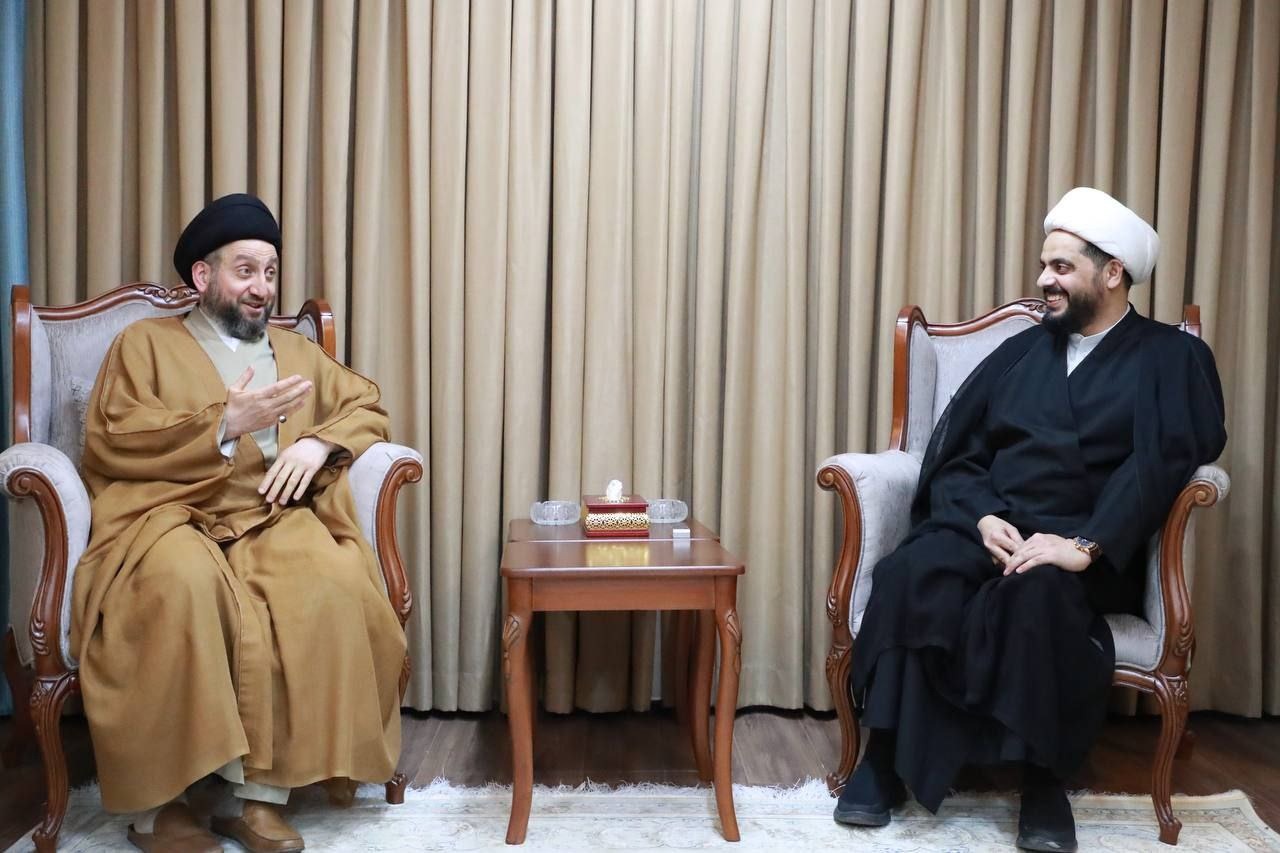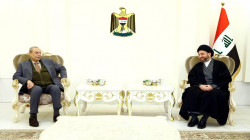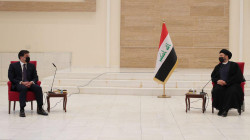Al-Khazali and al-Hakim stress the need to preserve the largest community's rights

Shafaq News / The leader of the Asa'ib Ahl al-Haq movement, Qais al-Khazali, and the head of al-Hikmah movement, discussed ways to preserve the rights of the "largest community."
According to a statement by al-Khazali's office, the two sides discussed the latest political developments in the countries.
They stressed the need to reach an understanding and preserve the rights of the "largest community", and laid emphasis on the importance of putting all efforts to resolve the current impasse.
The Coordination Framework is pursuing a multi-pronged approach to resolve the deadlock that has kept the country mired in political paralysis since October 10, a source from inside the Shiite forces consortium said on Sunday.
"The Coordination Framework leaders continue to hold meetings to deliberate proposals to a solution that end the Shiite-Shiite row and preserve the Shiite component's share of the authority," the source told Shafaq News Agency, "a delegation from the Coordination Framework is scheduled to visit al-Hannana, the headquarters of the Sadrist movement leader Muqtada al-Sadr, to break the ice between the Shiite rivals and revive the government talks."
The Coordination Framework, the source said, has appealed to the Kurdistan Democratic Party (KDP) and the Patriotic Union of Kurdistan (PUK) to find a common ground and agree upon a consensus government apart from their current candidates.
"The Framework is adamant about reuniting the Shiite home. It will never give up on the Sadrist movement. However, if the latter remains intransigent about the authoritarian government, the former will proceed with forming a government and naming a premier."
"The Coordination Framework is pondering further steps to knit the Shiite home," the source added, "it will be revealed soon."
On Thursday, the powerful Iraqi Shiite cleric said that he was stepping back for the next 40 days and giving his Shiite rivals the chance to form the country's next government.
The surprising move by Muqtada al-Sadr comes against the backdrop of a persisting political deadlock in Iraq, five months after general elections.
Al-Sadr's offer came in a tweet, in which he also called on his followers not to interfere "neither positively not negatively" as his rivals from the Coordination Framework, a coalition of Iran-backed Shiite parties, try to cobble together a Cabinet.
This translates into a nod to al-Sadr's rivals to pursue the cleric's Kurdish and Sunni allies in possible negotiations. There was no immediate response from the Coordination Framework to al-Sadr's offer.
Iraqi political parties are at an impasse, and al-Sadr — the winner of the election — has been unable to form a coalition government. He has assailed his rivals, saying they “obstructed and are still obstructing” the process.
The parties are at odds over the choice of candidate for president, an obstacle that may also extend to the premiership. It is also not clear which party constitutes the largest bloc in parliament because of unclear and shifting loyalties of some lawmakers and parties.
The 40-day window offered by al-Sadr would start on the first day of the Muslim holy month of Ramadan, expected to begin this weekend, depending on the sighting of the new moon. The Islamic calendar is a lunar one, meaning the timeframe offered by al-Sadr would stretch beyond Ramadan, when observant Muslims fast from dawn to dusk.
The development is “a clear challenge and dare" directed at his rivals while also being a “test of partners,” tweeted Farhad Aladdin, chairman of the Iraq Advisory Council, a policy research institute.
It was not immediately clear how sincere al-Sadr's offer was. The cleric, with a strong grassroots base, won the largest number of seats in the election but not enough to declare a parliamentary majority.
Iran-aligned parties, including that belonging to former Prime Minister Nouri al-Maliki, have become his chief rivals. A parliament session last Saturday failed to reach the two-thirds quorum necessary to elect a president. It was largely boycotted by lawmakers associated with the Coordination Framework.
Al-Sadr's move is a gamble: A failure by the Coordination Framework would give his party significant leverage, but its success would relegate al-Sadr's party to the role of the opposition.





